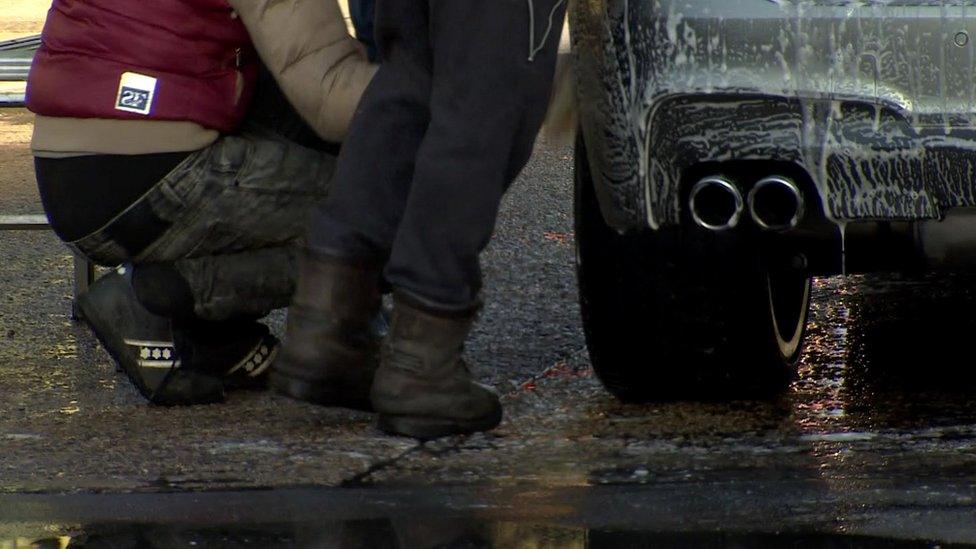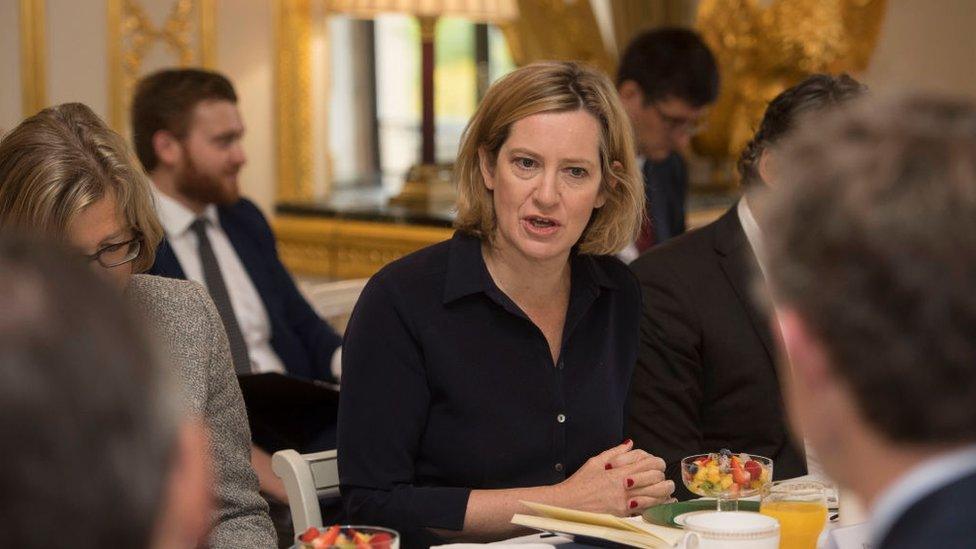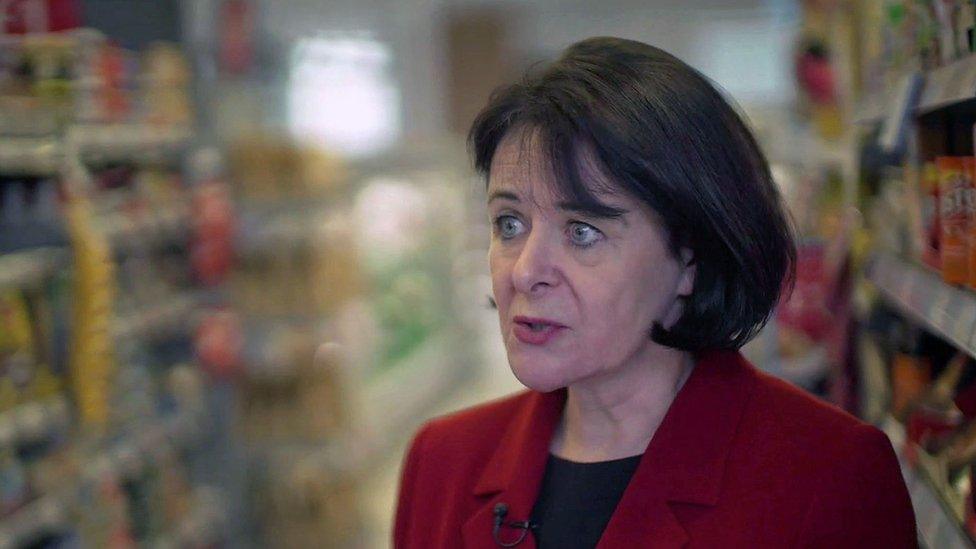'My captors took everything, my job gives me a future'
- Published
'If I tried to escape they said they would kill me'
There are at least 13,000 victims of modern slavery living in Britain's towns and cities, it is estimated.
But many argue that the number is probably much higher.
Those who escape or are discovered often recover physically but suffer from post-traumatic stress disorder or anxiety attacks.
They are terrified of the police, and for some their sense of trust has been so eroded that they are even afraid to engage with charities.
I met one man who managed to escape the modern slavers and is now seeking to rebuild his life here in Britain.
Slavery survivors
The first thing you notice about Peter (not his real name) is his enormous smile. He is warm and open, and keen to talk about his girlfriend.
"Can I show you a picture? We are planning to go to Spain for a small holiday soon… a paid holiday!"
He works re-stocking shelves in a Co-op store and tells me he loves everything about it; the manager, the hours, his colleagues.

Peter worked 12-hour days at a car wash - without any pay
He's one of the first dozen people to graduate from the Co-op's Bright Futures scheme which helps survivors of modern slavery in to work.
They're given a four-week work placement, which ends in a non-competitive interview. If both parties are happy there is a full-time job on offer.
Peter is a man bursting with optimism about the future, which is impressive when you discover his past.
He came to England in 2014, he says: "For work, I came here to be happy."
He spent time as a labourer and a waiter before a "friend" offered him a job on £50 a day in a car wash.
The 12-hour days were spent wet and cold without breaks, and Peter soon discovered he wouldn't get paid for any of it.
Worse was to come. The house he'd been placed in was guarded by men who wouldn't let him leave - apart from to open bank accounts with fake ID they'd given him.
Why didn't you run, I ask him. "I had no chance for running," he replies. "There were always two or three big men with me.
"They took my phone, they took everything. I was in a prison, if I tried to escape they said they would kill me."
Peter's escape came one night when his guards were drunk and he ran to the police.

Home Secretary Amber Rudd chairing the Modern Slavery Business Forum, designed to spearhead industry action to combat slavery
Through the Home Office's National Referral Scheme he was taken to a safe house, and put in touch with the charity City Hearts who provide support for survivors of modern slavery.
'Game changer'
Kirsty is a support coordinator and is helping to grow the Co-op scheme. "Giving survivors a job is an absolute game changer. They learn to dream again, to see in to a future," she says.
"That future was once taken from them. It's the best feeling in the world when they tell me they've done the most normal things like go for a drink with a colleague.
"For someone who's had to learn to trust all over again, that's huge."
The Co-op wants other businesses to look at their model, and think about how they can support survivors, they have held meetings with twelve different companies including Tesco and the Body Shop to pass on what's been learned.
I meet Pippa Wicks in a Co-op store where she's proud to talk about the group's philanthropic history. As the Co-op Group's deputy chief executive she believes the Bright Futures scheme fits in with its ethos.

"We feel we benefit too, not just from helping people who need it," says the Co-op's Pippa Wicks
In 1863 its members campaigned against slavery in the United States. At their AGM more than 150 years later they decided it was time to focus on victims of slavery again.
"It hasn't been easy. They don't have things like references, driving licences, or bank accounts so we've had to adapt HR dramatically," she tells me.
"We also work hard to protect their anonymity, it's up to them to tell their colleagues about their history. But we feel we benefit too, not just from helping people who need it - but from a richly diverse workforce."
'I can't go home'
Peter has decided he's not ready yet share his story with colleagues - apart from his girlfriend whom he met through his new job.
He wants to enjoy his new security and freedom. But there is one freedom he will never recover, before we leave I ask him if there are any plans to visit his home country.
"I think no. The people might know I am back, and it's too risky. I am sad for this because my mother is old and my brother and sister are there.
"But I think I can't go home, they have taken that away from me."